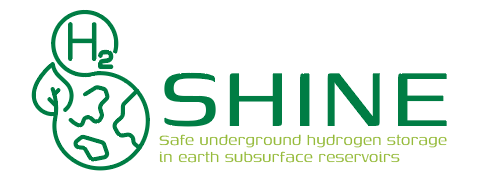NETWORK TRAINING
SHINE offers a set of networking scientific and transferable skills training sessions open to all the 10 recruited DCs. These events are designed by the project management boards on yearly basis, and then set up and organised by each project participating organisation. All recruited DCs are required to attend these events, with some training sessions also open to external participants.
List of training networking events for the year 2024
TU Delft – 29-30 April 2024
NETWORK TRAINING SHINE offers a set of networking scientific and transferable skills training sessions open to all the 10 recruited DCs. These events are designed by the project management boards on yearly basis, and then set up and organised by each project...
UGA – 24-28 June 2024
Training School: TS1 – RS 1Lead institution: UGAStart-date: 24-28 June 2024School name:H2/ fluid-rock interaction TS1 Training content. M16. University of Grenoble. The five-day course will include a two-day field trip. Day 1: intro H2/ fluid-rock interaction;Day 2:...
UEDIN – 8-12 July 2024
Training School: Summer School UHSLead institution: UEDINStart-date: 8-12 July 2024School name:3rd International Summer School in Underground hydrogen storage The 5 day summer school n UHS is developed for a broad audience who would like to learn more about the...
UNINA – September 2024
Training School: TS1 – RS2Lead institution: UNINAStart-date: September 2024School name: Hydrogen as key currency for microbial metabolism Training content-M18. University of Naples. Five-day course:Day 1: Microbial metabolism: a primer;Day 2: Subsurface...




